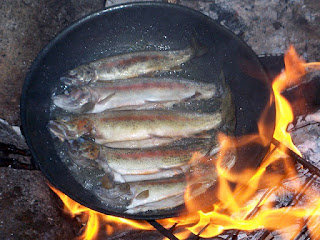In Edinburgh, where I live, it’s almost impossible to drive anywhere without encountering roadworks (where roads are being repaired).
Strangely, even if we only find one place where the road has been dug up, we would not normally talk about “a roadwork.” We would always refer to this as “roadworks” with an “s.”
Examples:
“There were delays on a busy stretch of the M6 motorway in Staffordshire after it remained shut due to overrunning roadworks this morning (Friday June 28).”
“To add to the fun this week we also learned the junction at Hyde Gardens and Cornfield Road will be closed for roadworks for more than a month.”
“Six days of roadworks are due to begin on the A1 on Tuesday, with lanes being closed overnight for a maintenance scheme.”
Photo credit: Wendy (Creative Commons)
I blog about editing, proofreading, and the English language.
Comments and suggestions are welcome.
Many of the phrasal verbs and idioms addressed in this blog were highlighted during an English conversation class I ran a few years ago. I’m grateful to those who attended this for helping me see my native language from a different perspective.
Most of the examples used are quotes from news articles. Click on the links (in yellow) to view the full article.
Saturday, 29 June 2019
Thursday, 13 June 2019
NEITHER USE NOR ORNAMENT
I saw this phrase last week on a cloth cat displayed in a cafe at the Scottish National Gallery of Modern Art.
Something that is neither beautiful nor useful might be described as “neither use nor ornament.”
Examples:
“There was a small electric heater in the corner, but it seemed to be of neither use nor ornament, and my friend also commented on the slight chill in the air.”
“Jenna Coleman plays Joanna, a mum struggling with a new baby, and fiance – Alastair – who was neither use nor ornament when looking after a child.”
“I realise that, but there’s art, then there’s that stupid thing that was neither use nor ornament.”
Photo credit: Alexander Lyubavin (Creative Commons)
Something that is neither beautiful nor useful might be described as “neither use nor ornament.”
Examples:
“There was a small electric heater in the corner, but it seemed to be of neither use nor ornament, and my friend also commented on the slight chill in the air.”
“Jenna Coleman plays Joanna, a mum struggling with a new baby, and fiance – Alastair – who was neither use nor ornament when looking after a child.”
“I realise that, but there’s art, then there’s that stupid thing that was neither use nor ornament.”
Photo credit: Alexander Lyubavin (Creative Commons)
Saturday, 8 June 2019
A NARROW SQUEAK
A narrow squeak is an escape, often achieved at the last moment, or an achievement that is only just attained.
Examples:
“A Staffordshire bull terrier called Jasmine had a narrow squeak after swallowing a four-inch rubber duck - which stayed in her stomach for a full nine months.”
“It was a narrow squeak, but the captain managed to make up time over the Atlantic – meaning that the plane arrived a whisker under four hours late, triggering a lower rate of compensation for the passengers: €300 rather than €600.”
“The manager was frank enough after the narrow squeak against Bournemouth to admit he had been worried about losing his job but clearly thought a couple of home wins would restore confidence.”
Photo credit: mike.horrocks (Creative Commons)
Examples:
“A Staffordshire bull terrier called Jasmine had a narrow squeak after swallowing a four-inch rubber duck - which stayed in her stomach for a full nine months.”
“It was a narrow squeak, but the captain managed to make up time over the Atlantic – meaning that the plane arrived a whisker under four hours late, triggering a lower rate of compensation for the passengers: €300 rather than €600.”
“The manager was frank enough after the narrow squeak against Bournemouth to admit he had been worried about losing his job but clearly thought a couple of home wins would restore confidence.”
Photo credit: mike.horrocks (Creative Commons)
Friday, 7 June 2019
FROM SCRATCH
To do something from scratch is to do it without using or relying on anything that has been done previously.
Examples:
“Some people make their costumes from scratch, and others buy them.”
Examples:
“Some people make their costumes from scratch, and others buy them.”
“The study confirms what we’ve been hearing for years: Cooking from scratch and eating ‘real food’ is better and healthier.”
Why scratch? According to the Oxford Dictionary of English Idioms, the scratch was the line or mark drawn to indicate the point from which competitors had to start a race, unless they had been awarded an advantage and were allowed to start ahead of this line. Thus, a competitor who started from scratch would start with no advantage.
[1] “scratch” In Oxford Dictionary of English Idioms, edited by Ayto, John. Oxford University Press, 2009.
Photo credit: UCL Engineering (Creative Commons)
Why scratch? According to the Oxford Dictionary of English Idioms, the scratch was the line or mark drawn to indicate the point from which competitors had to start a race, unless they had been awarded an advantage and were allowed to start ahead of this line. Thus, a competitor who started from scratch would start with no advantage.
[1] “scratch” In Oxford Dictionary of English Idioms, edited by Ayto, John. Oxford University Press, 2009.
Photo credit: UCL Engineering (Creative Commons)
Saturday, 1 June 2019
OUT OF THE FRYING PAN INTO THE FIRE
The phrase “out of the frying pan into the fire” is used to describe moving from a bad situation to a worse one.
Examples:
“Out of the frying pan and into the fire. That was the fate of a man who, after being arrested for one offence, tried to wriggle his way out by bribing a member of the arresting team, which then got him arrested again.”
“The simplest way to avoid most Google products is to switch to the Microsoft or Apple equivalents, in whole or in part. Some would see this as jumping out of the frying pan into the fire.”
“There’s a sense of out of the frying pan and into the fire for Bristol Rovers who, having been alarmingly beaten 4-1 at Doncaster Rovers, now take on League One leaders Luton Town who are in startling form.”
This phrase also features as the title for Chapter VI of J R R Tolkien’s book, “The Hobbit,” [1] which describes how the central character escapes from goblins only to be caught by wolves.
[1] The Hobbit (p. 99). J R R Tolkien. HarperCollins Publishers. Kindle Edition.
Photo credit: erik langner (Creative Commons)
Examples:
“Out of the frying pan and into the fire. That was the fate of a man who, after being arrested for one offence, tried to wriggle his way out by bribing a member of the arresting team, which then got him arrested again.”
“The simplest way to avoid most Google products is to switch to the Microsoft or Apple equivalents, in whole or in part. Some would see this as jumping out of the frying pan into the fire.”
“There’s a sense of out of the frying pan and into the fire for Bristol Rovers who, having been alarmingly beaten 4-1 at Doncaster Rovers, now take on League One leaders Luton Town who are in startling form.”
This phrase also features as the title for Chapter VI of J R R Tolkien’s book, “The Hobbit,” [1] which describes how the central character escapes from goblins only to be caught by wolves.
[1] The Hobbit (p. 99). J R R Tolkien. HarperCollins Publishers. Kindle Edition.
Photo credit: erik langner (Creative Commons)
Subscribe to:
Comments (Atom)




